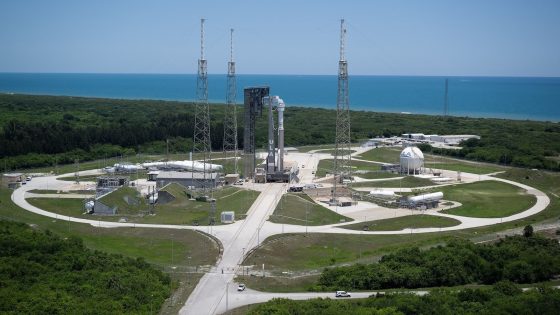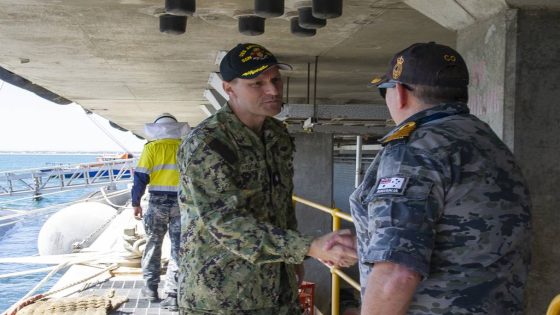NASA again delayed its first astronaut-crewed flight into space on Boeing’s Starliner, scrubbing Saturday afternoon’s launch just minutes before it was due to begin.
The space agency said the launch was scrubbed “due to the computer ground launch sequencer not loading into the correct operational configuration after proceeding into terminal count.”
United Launch Alliance “is working to understand the cause,” NASA added.
The next launch opportunity is Sunday at 12:03 p.m. ET.
A handout photo made available by NASA shows a United Launch Alliance Atlas V rocket with Boeing’s CST-100 Starliner spacecraft aboard after being rolled out of the Vertical Integration Facility to the launch pad at Space Launch Complex 41, ahead of the NASA’s Boeing Crew Flight Test at Cape Canaveral Space Force Station in Florida, on May 30, 2024.
Joel Kowsky/EPA via Shutterstock
The Starliner was set to launch from the Cape Canaveral Space Force Station in Florida to take an approximately 24-hour journey to the International Space Station.
The spacecraft can carry seven people, but this test drive will only have two NASA astronauts: Barry Wilmore, 61, and Sunita Williams, 58.

The United Launch Alliance (ULA) Atlas V rocket with Boeing’s CST-100 Starliner spacecraft sits to Space Launch Complex 41 at Cape Canaveral Space Force Station Kennedy Space Center in Florida, on May 31, 2024.
Miguel J. Rodriguez Carrillo/AFP via Getty Images
Williams and Wilmore are expected to spend one week aboard the ISS and will be evaluating the spacecraft and its systems.
Upon re-entry, the Starliner will deploy parachutes and an airbag system, landing the astronauts in the western U.S.
If the mission is successful, NASA could certify the Starliner to perform routine missions to and from the ISS. NASA has primarily been using SpaceX’s Dragon spacecraft to transport crew and cargo to the ISS.
The missions are part of NASA’s larger Commercial Crew Program, which uses American rockets and spacecraft to send astronauts and cargo to the ISS with the hope of helping NASA prepare for the upcoming missions to the moon and Mars.
Saturday was just the latest Starliner launch to get delayed.
The launch was tentatively scheduled for May 6, but was scrubbed after a problem with an oxygen valve on a rocket from United Launch Alliance, which manufactures and operates the rockets that launch spacecraft into orbit. A new date was set for May 25, but a small helium leak was discovered in the service module, which contains support systems and instruments for operating a spacecraft.
NASA awarded Boeing a $4.2 billion contract to develop Starliner, but a decade later, the company has lost nearly $1.5 billion because of the delays.
Source Agencies




